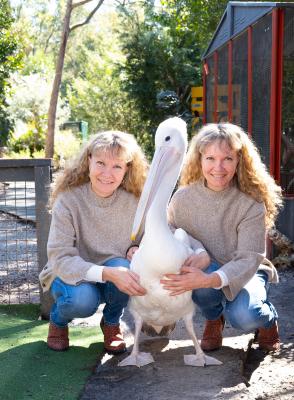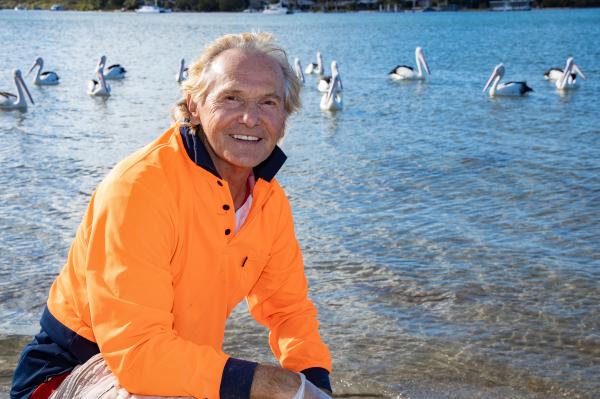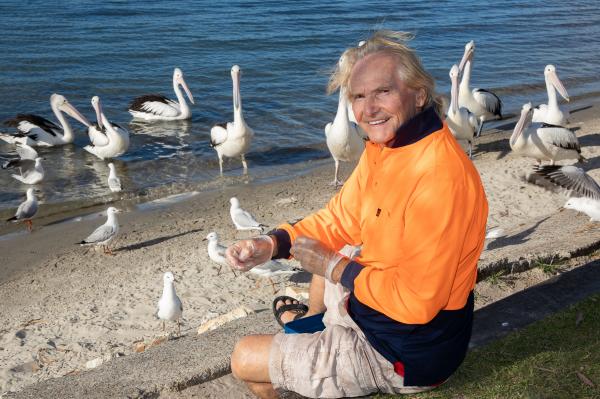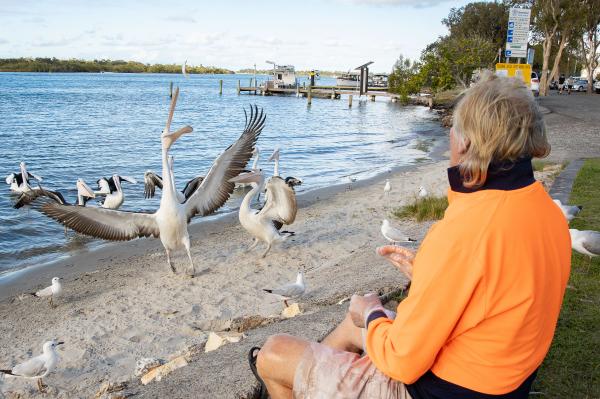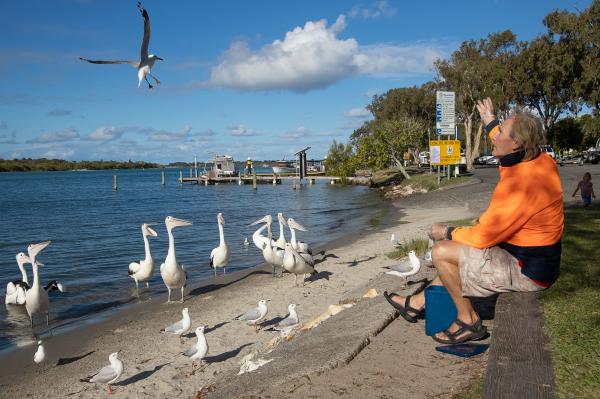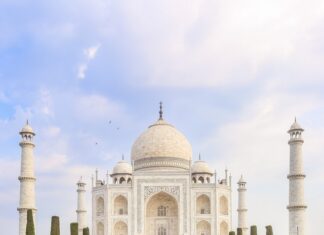Neglected crab pots, discarded fishing lines and hooks and young river hoons are major bugbears for wildlife advocate Goetz Schweinfurth who believes education is key to curbing behaviour damaging to wildlife, but his calls keep falling on deaf ears.
As the grandson of Baltic German botanist and African explorer Georg August Schweinfurth, Goetz felt destined to work with nature.
The Peregian Beach wildlife advocate spends his days rescuing local wildlife, particularly seabirds, and delivering them to wildlife hospitals and carers for rehabilitation and he says the numbers of victims of human contact are increasing.
Seabird rescuers Bridget and Paula Powers, known as the Twinnies are so overwhelmed at their Pelican and Seabird Rescue facility at Landsborough they are urging people to contact Goetz to rescue injured and sick seabirds around Noosa instead of taking them away from their critical rehabilitation work. The Twinners fear they will be further overwhelmed these Christmas holidays as crowds head to the beaches and waterways for holidays.
The love of wildlife Goetz shares with the Twinnies has been a lifelong fascination for him.
Born in Berlin Goetz moved to Australia with his family as a 10-year-old and immediately signed up for the Boy Scouts and Surf Lifesavers.
As a boy he was enthralled by insects and reptiles then as an adult he sought adventure and signed on with Foreign Affairs to become a Kiap or patrol officer in pre-independent Papua New Guinea.
As a patrol officer with the Australian and British governments Goetz had wide-ranging authority usurping local authorities. He travelled from village to village in his duties, overseeing solutions to local issues.
For 30 years Goetz worked in PNG, moving to consultancy after independence. His services to the community were recognised by the Queen who awarded him an Order of the British Empire (OBE).
In addition to his duties Goetz sought to assist wildlife and since moving to Noosa he’s volunteered alongside other wildlife organisations across the region.
He praised the work of the Twinnies for putting their heart and passion into helping wildlife, particularly the pelicans and seabirds.
“What little they have they give it all,“ he said.
Goetz has noticed an increased number of injuries in seabirds since Covid-19 restrictions increased visitor numbers and identified several issues in the river causing problems for wildlife that he believes could be easily rectified through education.
“The local fisherman are no problem. They respect the river,“ he said. “Visitors put a line in and go and have a glass of wine. We had a pelican a couple of weeks ago that took the entire rod and line. Last Christmas we lost about 18 ducks. Kids go there with fishing lines. We had a little duckling hanging off a fishing rod.“
Goetz said recreational boat users caused ongoing problems.
“We had an incident of a jetski run into a pelican on purpose,“ he said. “We call them river rats. They just run up and down the river and cause a lot of trouble to other people as well.“
“Another one of the problems is crab traps. We have 1800 crab traps. By law no one can touch another persons crab traps. The crabs are dying in there. There’s no proper checks. It should be properly regulated. In Lake Weyba there are traps everywhere. I see pelicans trying to pull fish out of them and catching their beaks.“
Goetz said he spent a lot of time educating people and has called on the government to erect information signs similar to those in Noosa National Park along Noosa River to teach people about the wildlife in the region.
He wants all government levels and users of the river to come together for the benefit of wildlife.
“A lot of people wouldn’t have a clue,“ he said. “If we’re going to be serious about saving our wildlife we have to work together.“
If people see a pelican or seabird injured or ill they can contact Goetz Schweinfurth on 0466 307 536 or phone 1300ANIMAL.

